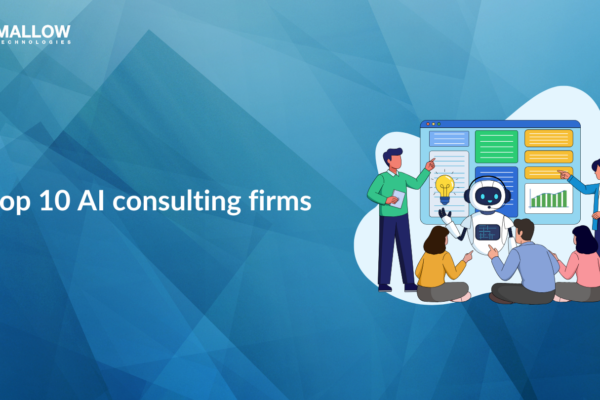Well, it’s just another typical day of yours with lots of questions on which would probably be the right framework for your application. You might find yourself asking:
- “Is the framework scalable enough to handle the growth of my enterprise application?”
- “ How does the framework address security concerns, such as data encryption and protection against common vulnerabilities?”
- “How easily can the framework integrate with other technologies and third-party services commonly used in enterprise environments?”
When it comes to building enterprise-level applications, the utilisation of Laravel not only sidesteps these pain points but also offers a robust solution to the intricacies people usually face. From optimising feature-rich capabilities to providing a structured architectural framework, Laravel stands out as a strategic choice, addressing the multifaceted challenges that come with building and scaling enterprise applications.
Here at Mallow, we’ve worked with dozens of businesses to leverage Laravel capabilities to enhance the functionality and scalability of enterprise applications. From this experience we also encompasses a keen awareness of the challenges inherent in large-scale web development.
After going through this article you will learn how Laravel addresses common challenges faced by enterprises, providing solutions for scalability, complex business logic, security concerns, integration complexities, performance optimisation, and maintainability. You will develop a comprehensive understanding of how Laravel’s robust architecture, expressive syntax, and built-in tools will empower you to create sophisticated applications that align seamlessly with the complex requirements of enterprise-level projects.
What are some of the typical challenges encountered by applications at the enterprise level?
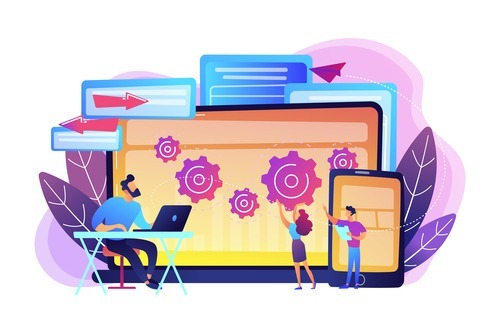
An enterprise-level application is more than just a collection of code; it’s a sophisticated ecosystem meticulously crafted to meet the demands of large-scale business operations. Defined by its robust architecture, scalability, and a comprehensive set of features, an enterprise-level Laravel application stands as a testament to the framework’s adaptability and power.
It goes beyond mere web development, incorporating complex business logic, security measures, and seamless integrations. This breed of applications, as you know, is shaped by a strategic alignment with organisational goals, leveraging Laravel’s capabilities to provide not just a solution but a dynamic platform capable of evolving alongside the ever-changing landscape of enterprise requirements.
Enterprise-level Laravel applications, while robust and versatile, can encounter various challenges due to the scale and complexity of their operations. Some common challenges include:
- Scalability – Meeting growing demands – As the user base and data volume grow, ensuring that the application can scale horizontally to handle increased loads without compromising performance becomes a significant challenge. The ability to scale horizontally becomes crucial to sustain business growth.
- Complex business logic – Navigating intricate processes – Enterprise applications often involve intricate business processes and rules. Managing and implementing complex business logic while maintaining code clarity and efficiency can be challenging. With the growth of the application, maintaining a clean and organised codebase becomes crucial.
- Security concerns – Safeguarding business assets – Recognising the critical importance of security as sensitive business data is processed. Laravel’s built-in security features are valuable, but businesses must remain vigilant, adhering to best practices to safeguard vital assets and maintain trust.
- Integration with legacy systems – Bridging the gap – Enterprises may have existing legacy systems that need to be integrated with the Laravel application. Ensuring smooth interoperability and data exchange between modern and legacy systems can be a complex task. Ensuring smooth interoperability and data exchange between modern and legacy systems to streamline business operations and data flow.
- Performance optimisation – Ensuring responsive experiences – Optimising the performance of large-scale applications, including database queries, caching, and resource-intensive tasks, requires continuous attention to maintain an optimum user experience. Continuous attention is vital to deliver a responsive user experience and meet evolving business expectations.
- Real-time data processing – Powering instant decision-making – Some enterprise applications require real-time data processing, which can be challenging to implement efficiently.
- Database migrations and versioning – Ensuring seamless operations – Managing database changes, migrations, and versioning in a way that does not disrupt ongoing operations can be a challenge. Collaborating effectively among large development teams working on different components of the application requires proper coordination, version control, and adherence to coding standards. Effective collaboration among large development teams is necessary, involving proper coordination, version control, and adherence to coding standards to ensure business continuity.
Here’s a table outlining some common challenges faced by enterprise-level Laravel applications along with the corresponding solutions that Laravel provides:
| Challenges | Laravel Solutions |
| Scalability | Laravel provides horizontal scaling capabilities, allowing applications to handle increased loads efficiently. |
| Complex business logic | The framework supports the integration of intricate business rules through its elegant and expressive syntax. |
| Security concerns | Laravel offers built-in security features like hashed passwords, CSRF protection, SQL injection protection, Cross site scripting protection, and robust authentication. As detailed in the official Laravel documentation, the CSRF protection mechanism generates unique tokens for each active user session, verifying that the authenticated user is the one actually making the requests to the application. |
| Integration with legacy systems | Laravel’s modular structure facilitates seamless integration with existing legacy systems through APIs. |
| Performance optimisation | The framework includes tools such as Eloquent ORM and caching mechanisms to enhance overall application speed easily and efficiently. As highlighted by Honeybadger, implementing proper caching strategies drastically reduces database load and improves overall response time |
| Maintainability of codebase | Laravel’s clean and organised code structure, along with Composer for package management, aids code maintainability. |
| Real-time data Processing | Laravel’s support for tools like WebSockets and broadcasting events enables real-time data processing. |
| Database migrations and versioning | Laravel’s migration system simplifies database management, allowing for smooth versioning and updates. |
| Community Support | Laravel benefits from a robust community, ensuring ample resources, forums, and expertise for problem-solving. |
What does Laravel framework offer for the development of enterprise-level applications?
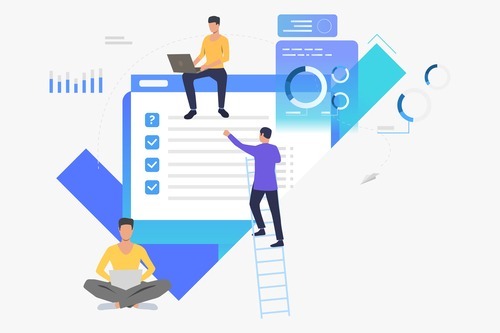
Expressive syntax and development speed
Laravel’s exceptional appeal lies not only in its robust features but also in its expressive syntax, enabling developers to craft code that is not only efficient but also elegant. This expressive syntax significantly accelerates the development process, fostering a streamlined and intuitive coding experience. The framework’s elegant syntax contributes to a more readable and maintainable codebase, facilitating collaboration among team members.
With Laravel, enterprises can harness the power of this expressive syntax to expedite project timelines without compromising on code quality, allowing them to stay ahead in the competitive landscape by delivering solutions promptly and efficiently. The framework’s commitment to an expressive and developer-friendly syntax is a key factor in enhancing overall development speed for enterprise-level applications.
Explore this guide on assessing the code quality of your Laravel application to maintain optimal standards. Learn effective strategies to ensure that your application’s code quality remains top-notch.
Robust security features

Laravel stands as a fortress when it comes to developing enterprise-level application development, fortified by its robust security features. The framework’s commitment to safeguarding sensitive data aligns seamlessly with the stringent security requirements of enterprises. Laravel boasts a comprehensive suite of security mechanisms, including encryption, CSRF protection, and middleware, forming an impregnable shield against common vulnerabilities.
Through its encryption capabilities, Laravel ensures that data, both in transit and at rest, remains confidential and tamper-proof. The framework’s built-in CSRF protection guards against cross-site request forgery attacks, a crucial defense in the modern threat landscape.
Laravel’s dedication to security is not merely a feature but a philosophy woven into the fabric of the framework, offering enterprises a robust defense against evolving cyber threats. As data protection regulations become more stringent, Laravel’s unwavering commitment to security positions it as an invaluable ally for enterprises seeking to fortify their applications and protect sensitive information in an ever-evolving digital landscape.
Explore this article for valuable insights on safeguarding your Laravel application against common security threats. This resource serves as a practical guide to fortify your application’s defenses, providing essential information to enhance its overall security.
Flexible scalable options and out of the box performance
Laravel’s prowess in scalability makes it an exemplary choice for enterprises facing the dynamic demands of application growth. The framework’s horizontal scalability allows for seamless expansion, effortlessly catering to the increasing needs of enterprise applications.
Laravel offers a spectrum of performance optimisation tools and practices that contribute to a responsive user experience. The Eloquent ORM (Object-Relational Mapping) simplifies database queries, enhancing efficiency. Caching mechanisms, including Laravel’s support for popular caching systems like Redis, enable the swift retrieval of frequently accessed data, reducing response times. Eager loading minimises database queries, further boosting application speed.
A vibrant community support!
Laravel’s strength extends beyond its technical capabilities to the robust support provided by its vibrant community, making it an indispensable asset for enterprise developers. The significance of Laravel’s strong community support cannot be overstated, particularly in the context of building and maintaining enterprise-grade applications. The active and engaged Laravel community acts as a collective knowledge hub, offering a wealth of resources, tutorials, and solutions to intricate challenges that developers may encounter during their enterprise projects.
The community’s commitment to continuous improvement ensures that Laravel remains at the forefront of best practices and security standards. Regular updates, contributions, and shared experiences within the community create an environment where enterprise developers can exchange insights and stay informed about the latest developments in the Laravel ecosystem. This collaborative ethos translates into heightened stability and security for enterprise-grade applications.
Eloquent ORM for efficient database interactions

Laravel’s Eloquent ORM emerges as a cornerstone in the realm of database management, offering a plethora of benefits that significantly elevate the efficiency and maintainability of enterprise-level applications. Eloquent, as an Object-Relational Mapping tool, facilitates seamless and intuitive interactions with databases, revolutionising the way developers handle data.
One of the primary advantages of Eloquent ORM lies in its ability to simplify complex database queries. By providing an expressive syntax and a fluent query builder, Eloquent enables developers to articulate database operations in a manner that closely mirrors natural language. This not only enhances the readability of the code but also streamlines the process of crafting intricate database queries, saving valuable development time.
Beyond its syntax, Eloquent brings a level of abstraction that shields developers from the intricacies of database management. Tables are represented as classes, and relationships are defined in a straightforward manner, reducing the cognitive load on developers and contributing to a more maintainable codebase.
Efficiency is further amplified by Eloquent’s support for features like eager loading, allowing developers to retrieve related data in a single query, mitigating the challenges associated with the N+1 query problem.
Easier integration capabilities

Laravel stands out as a powerhouse when it comes to integration capabilities, offering a versatile and seamless framework for connecting with third-party services, APIs, and enterprise systems. According to Laravel News, its architecture supports a wide array of integrations, allowing for flexible and scalable enterprise solutions. The framework’s architecture is designed with interoperability in mind, making it exceptionally adept at facilitating smooth integrations crucial for enterprise-level applications.
Laravel’s RESTful API support simplifies the integration process, enabling developers to seamlessly connect with external services and applications. This is particularly valuable in the context of enterprise resource planning (ERP) systems, where Laravel’s flexibility allows for the creation of custom solutions tailored to the unique requirements of an organisation.
What sets Laravel apart in enterprise integration is its innate ability to harmonise with the tools commonly used in enterprise environments. Whether it’s integrating with CRM systems, payment gateways, or communication platforms, Laravel’s adaptability ensures a frictionless connection. The framework’s modular structure allows for the development of robust and scalable integrations, ensuring that enterprise applications can effortlessly communicate with diverse systems.
Built-in testing and debugging tools
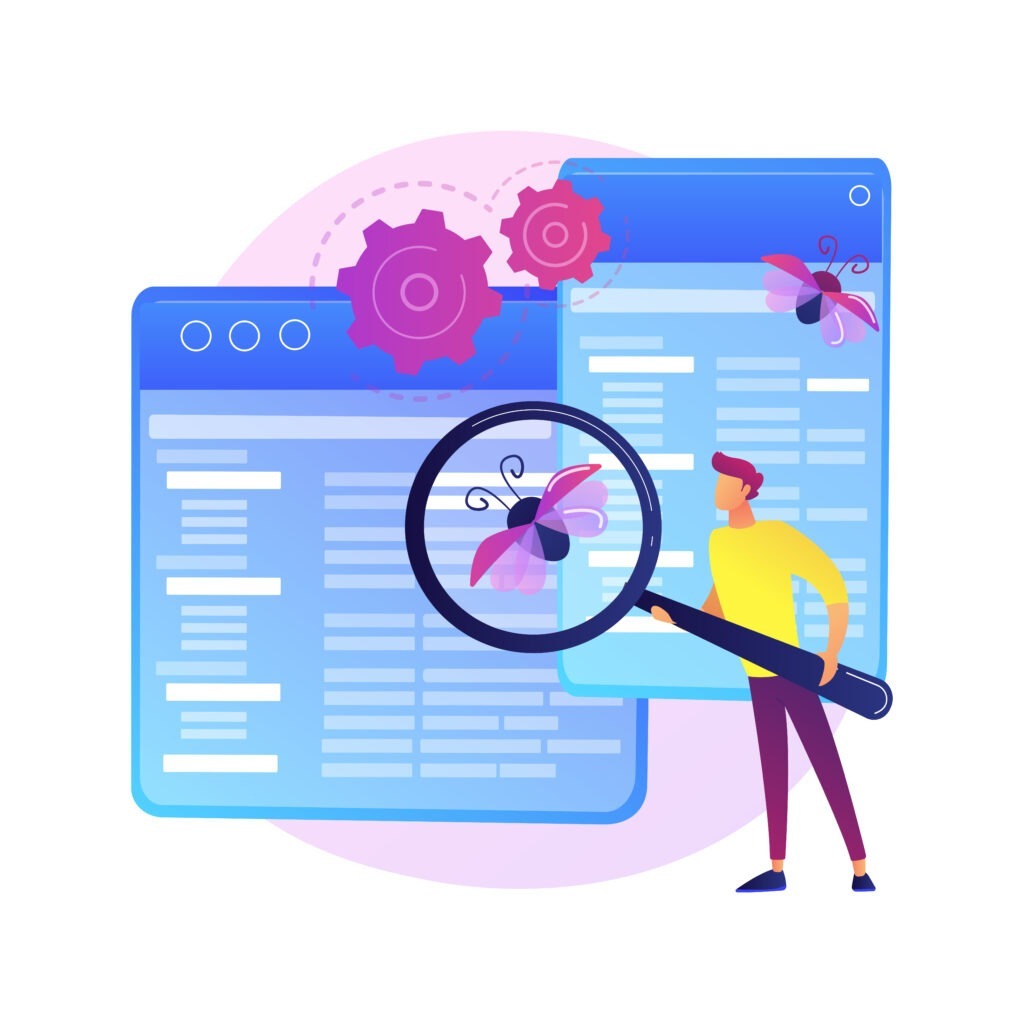
Laravel’s commitment to robust and reliable enterprise applications is further underscored by its comprehensive suite of built-in testing and debugging tools. The integration of PHPUnit, a widely used testing framework in the PHP ecosystem, empowers developers to create and execute tests with ease, ensuring the integrity and reliability of their codebase. Pest is an alternative testing framework to PHPUnit, which is the default testing framework for Laravel. While PHPUnit is still widely used and supported, Pest offers a more concise syntax that some developers find more readable and expressive.
The built-in testing features in Laravel provide a structured environment for developers to write unit tests, integration tests, and even perform HTTP tests for API endpoints. As noted in the Laravel documentation, the framework includes built-in support for PHPUnit and Pest, streamlining the testing process from the start. This not only simplifies the testing process but also promotes a culture of testing-driven development (TDD), where the reliability of the application is systematically validated throughout the development lifecycle.
In addition to testing, Laravel framework offers powerful debugging tools that streamline issue resolution and maintenance. The framework’s intuitive error handling and logging mechanisms provide detailed information about errors, enabling developers to identify and address issues promptly. Laravel’s Artisan command-line tool includes useful commands for debugging, such as “tinker” for interactive debugging and exploration of code, enhancing the efficiency of issue diagnosis.
Supports Microservices architecture

In a microservices environment, where applications are decomposed into smaller, independent services, Laravel offers a cohesive ecosystem that aligns with the principles of modularity and scalability.
One of the significant benefits of using Laravel in a microservices environment is the enhanced maintainability and flexibility it provides. Each microservice, treated as a standalone application, can be developed, tested, and deployed independently. This decoupling of services simplifies updates and maintenance, as changes in one microservice do not necessarily impact others.
Check out this article for comprehensive insights into the vital prerequisites necessary for hosting your Laravel application. Gain valuable information to ensure a seamless and secure hosting environment for your project.
Efficient queue processing
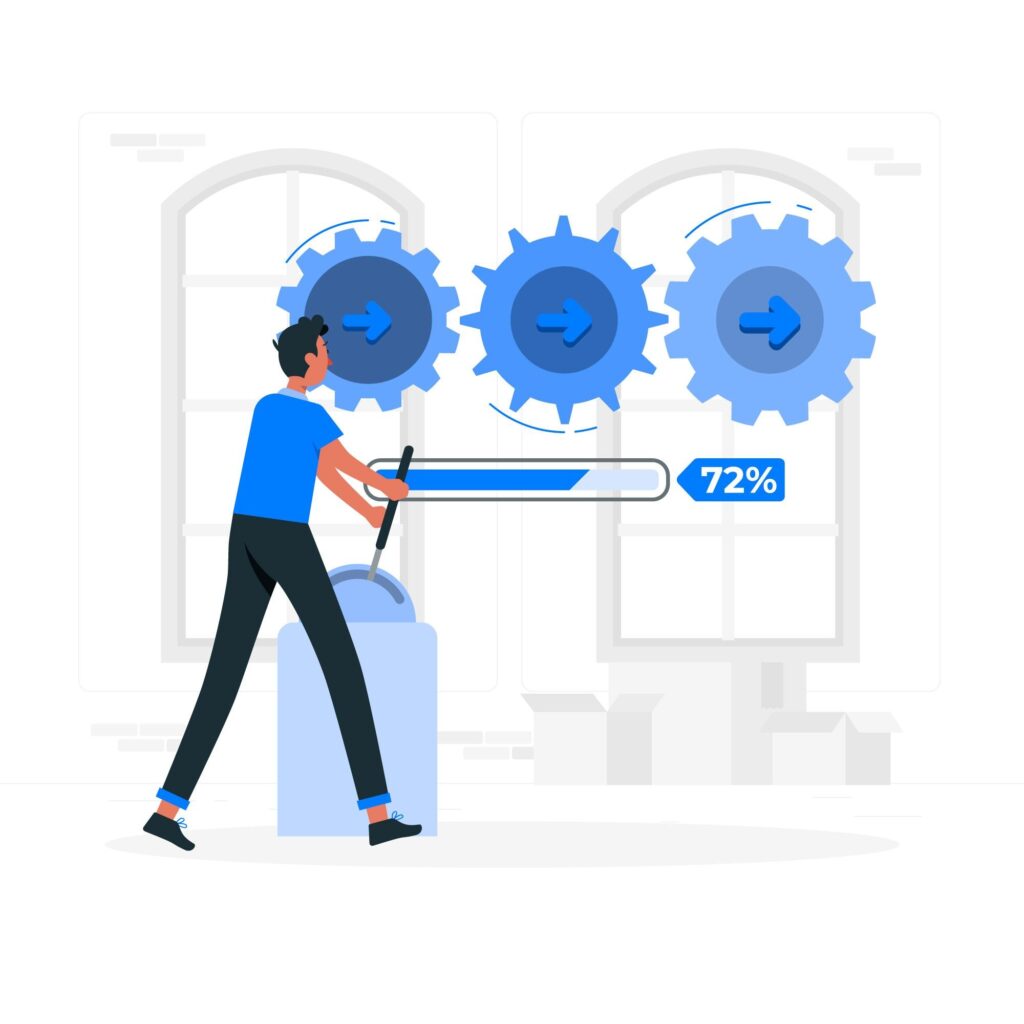
In the landscape of enterprise-level applications, Laravel framework not only stands out but excels in seamlessly handling background jobs, making it the of choice for businesses with intricate processing requirements. What sets Laravel apart is the hassle-free and straightforward manner in which it facilitates the execution of background tasks through its built-in job processing system.
The simplicity and ease of handling background jobs in Laravel are evident in its seamless integration with various queue backends, including databases and Redis. According to Laravel’s official docs, queues allow for deferred processing of tasks like emails and database cleanup, enhancing app speed and responsiveness. This feature empowers developers to effortlessly offload time-consuming tasks to the background, preserving the responsiveness of the user experience. Laravel’s intuitive queue system is specifically designed to manage diverse tasks, from sending emails to processing images or handling complex computations.
Laravel Supervisor is a package that allows you to monitor and manage Laravel Queue workers using Supervisor, a process control system. You can also use Laravel Telescope, which is a powerful debugging and introspection tool. While not exclusively for queuing, it provides insights into queued jobs, making it easier to debug and optimise.
Manage caching seamlessly
Laravel’s streamlined approach to caching involves minimal code changes, allowing developers to implement caching strategies effortlessly. This simplicity translates to faster development cycles, reducing the time and effort required to optimise an application’s performance through caching mechanisms.
The ease of handling caching in Laravel directly contributes to improved application speed and responsiveness. Faster-loading applications enhance user experience, reducing bounce rates and increasing user engagement. In the competitive landscape of enterprise applications, a faster and more responsive system can lead to higher customer retention and loyalty.
Efficient caching mechanisms contribute to cost savings by reducing the load on servers and optimising resource utilisation. This not only enhances the overall performance of the application but also ensures a more sustainable and cost-effective infrastructure.
Explore this informative article for valuable insights on enhancing and optimising the performance of your Laravel application. Discover high-level strategies and tips to effectively manage and elevate the performance of your Laravel-based projects.
Handle upgrades with ease!
Managing upgrades in Laravel is a straightforward process, offering both manual and automated approaches to ensure a smooth transition. Laravel Shift, a dedicated service for Laravel, further simplifies the upgrade process, automating the tedious aspects and minimising the risk of errors.
From a business perspective, the ease of handling upgrades in Laravel translates into increased agility. Swift adoption of new features, security patches, and updates allows enterprises to stay at the forefront of technology without disrupting ongoing operations. This adaptability is crucial in the fast-paced digital landscape, enabling businesses to respond promptly to evolving market trends and customer expectations.
Do check out our article on how to handle the upgrade process of your Laravel application efficiently. This will provide you with a comprehensive overview of the various available approaches for upgrading your Laravel application.
How much it would cost you to hire a Laravel development company?

By now, you have gained a comprehensive understanding of the various challenges associated with managing an enterprise-level Laravel application.
Equipped with insights into overcoming these challenges through Laravel’s solutions, the next step is to explore how you can efficiently build your application development team to build your Laravel application.
If you’re considering assembling an entire application development team for your enterprise-level Laravel project rather than hiring individual developers, explore this insightful resource on how to hire an application development team. It offers a comprehensive tour, guiding you through what to expect and providing valuable insights for a successful team-building process.
Still unsure about how to proceed further with your application development process? Feel free to reach out to our team.
Your queries, our answers
Yes, we can continue developing your existing Laravel application. Please provide the current project details so we can assess and proceed. For more details, get in touch with our team.
No, we focus on custom Laravel solutions tailored specifically to your needs. We do not offer pre-built, off-the-shelf products.
Yes, we develop Laravel applications for various domains, including e-commerce, healthcare, finance, and more.
The cost varies based on the project's complexity and scope. For a basic MVP, costs generally range from $20,000 to $40,000 for web apps and $10,000 to $25,000 for mobile apps. For more advanced applications, costs can be higher. We offer a detailed cost breakdown tailored to your specific needs. To know more, check out our article on How much does it cost to work on a Laravel project with Mallow? and discover how we can build a strong partnership together.
The timeline depends on the project's complexity. A basic project may take a few weeks, while more complex applications could take several months.
Yes, we can align our working hours with your time zone to facilitate effective communication throughout the development process. For more details on how you can handle timezone differences efficiently, do check out our article on how to handle timezone differences while working with an offshore development team.
Mallow offers the following outsourcing models: Project-based outsourcing, Staff augmentation, & Dedicated development team (DDT)
Yes, we offer maintenance and support services to ensure your Laravel application remains up-to-date and functional.
Yes, you will own the intellectual property rights of your Laravel application upon project completion. Check out our article on why owning intellectual property rights while outsourcing your application is important.
The cost is influenced by several factors including the complexity of the project, the number of features required, and whether the application is for web or mobile. We provide a personalized estimate based on your project details.
We work with the latest stable versions of Laravel and can also support older versions if needed based on your project requirements. For more details check out our article on Laravel upgrade: when and how to transition to the latest version
Yes, we offer post-deployment support to address any issues and provide updates as needed.
To hire a Laravel developer from Mallow, you can contact us with your project requirements. We'll discuss your needs, suggest suitable developers or teams, and provide you with a proposal. Once the terms are agreed upon, we can start the development process.
Yes, you can hire a dedicated Laravel developer or a team of developers from Mallow. This allows you to have a dedicated resource working exclusively on your project, providing more control and flexibility over the development process.
To hire the right laravel developer for your project, check out this article on tips to hire the right Laravel developer.
Author
Anandhan
Anandhan is a passionate technical lead at Mallow, where he plays a crucial role in driving innovation and overseeing the development of cutting-edge solutions. With a wealth of experience in the field of technology, he consistently strives to elevate his team's performance and deliver exceptional results. His multifaceted interests inspire him to approach challenges with creativity and an open mind, leading to innovative solutions that transcend conventional boundaries. Beyond his professional endeavours, Anandhan nurtures a love for literature and cinema. During his free time, you'll often find him engrossed in the pages of books across various genres, exploring diverse narratives and gaining insights from authors around the world.


